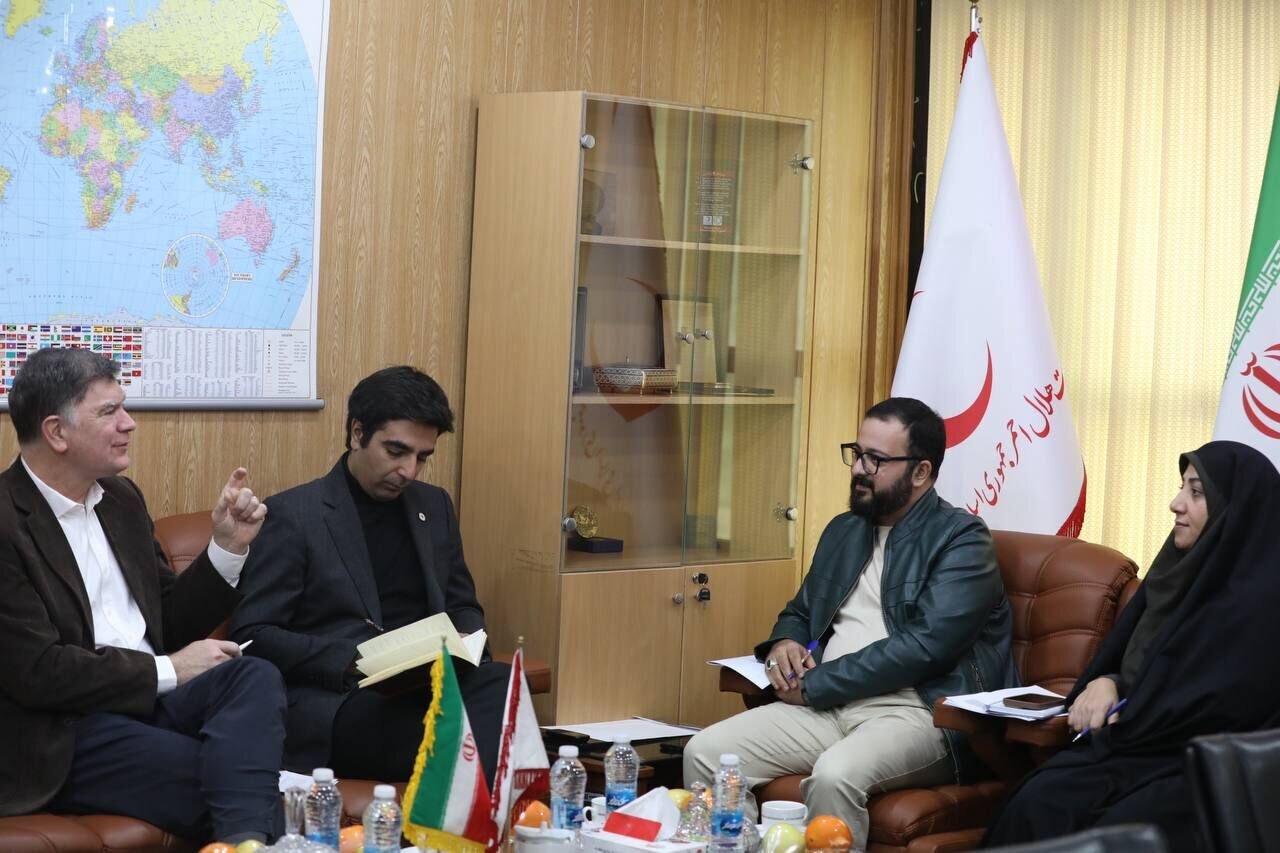ICRC underscores boosting ties with IRCS in rehabilitation mental health
ICRC underscores boosting ties with IRCS in rehabilitation, mental health
TEHRAN – Vincent Cassard, the representative of the International Committee of the Red Cross (ICRC) in Iran, in a meeting with Razieh Alishvandi, the director of the Iranian Red Crescent Society (IRCS) for international affairs, has highlighted the need for expanding cooperation in humanitarian sectors, mainly rehabilitation and mental health.

“The cooperation in rehabilitation and mental health fields has progressed well so far, and we believe that it will provide suitable and effective platforms for enhanced collaborations between the two sides,” IRNA quoted Cassard as saying.
The official made the remarks during a meeting held on Monday in Tehran. “We are also ready to expand collaborations in family reunification; it is one of our key priorities, which can play an effective role in alleviating the pain of families affected by crises,” he added.
Referring to the joint courses held on fundamentals of the ICRC and IRCS, Cassard said, “We look forward to similar educational cooperation in the future.”
The official went on to laud the IRCS efforts in providing relief services to war-affected people, particularly in Gaza, and Lebanon including Syrian refugees, announcing readiness to enhance cooperation with the IRCS in providing humanitarian protection to Syrian refugees.
Alishvandi, for her part, said the IRCS is ready to promote its cooperation in various humanitarian fields, like rehabilitation, to play a more effective role in improving human living conditions.
“The IRCS is providing rehabilitation services both nationally and globally. These services are provided in cooperation with the ICRC in the eastern provinces of the country which are mainly hosting immigrants,” she noted.
Referring to the challenges and problems faced by Syrian and Lebanese refugees, Alishvandi asked for the ICRC support in helping the war victims in the region.
“Along with our international colleagues, we have always done our best to fulfill our humanitarian duties by assisting those in need and those affected by crises, regardless of geographical borders.”
Co-op in rehabilitation sector
In August 2024, Alishvandi and Cassard discussed potential ways to boost cooperation.
“We are interested in maintaining and boosting joint activities, but the current focus of the Iranian Red Crescent Society is on strengthening cooperation in the field of rehabilitation, the official stated.
The Iranian Red Crescent Society has more than 200 active rehabilitation centers nationwide. Accordingly, screening patients with musculoskeletal disorders is on the agenda to identify the patients and prevent these problems, she highlighted.
Cassard, for his part, lauding the IRCS efforts in various fields, said, “The International Committee of the Red Cross is ready to cooperate with the Iranian Red Crescent Society in all sectors.”
Cassard went on to extend an invitation to the IRCS, in recognition of its outstanding activities in the field of rehabilitation, to attend and cooperate in the international rehabilitation conference.
In June 2024, the IRCS and the ICRC discussed ways to enhance rehabilitation services for vulnerable and disabled individuals in Zahedan, the capital of Sistan-Baluchestan.
During a meeting on June 13, 2024, Alishvandi and Cassard visited the rehabilitation center in Zahedan, the IRCS website reported.
Visiting the center, Alishvandi reviewed the joint rehabilitation project which in collaboration with the ICRC aims at providing physical rehabilitation services to migrants in need as well as vulnerable citizens in the cities of Zahedan, Iranshahr, Chabahar, and Zabol in Sistan-Baluchestan province.
Based on the agreement, physical rehabilitation services have been provided in Sistan-Baluchestan province since the Iranian year 1398 (2018-2019).
“Currently, the Iranian Red Crescent Society operates rehabilitation centers in all 31 provinces; they offer a wide range of services to individuals with physical disabilities as part of its program,��” Alishvandi stated.
The ICRC funds physical rehabilitation programs for vulnerable and disabled individuals, both Iranians and Afghans in Sistan-Baluchestan province.
The support covers the costs of various services and supportive devices such as prostheses, orthotics, physiotherapy, special shoes, wheelchairs, canes, and walking aids.
The logistics department of ICRC purchases needed items either from Sistan-Baluchestan (in case available) or Tehran provinces.
Ongoing training sessions and on-the-job support are provided during field visits to orthotists and prosthetists throughout the manufacturing process.
Moreover, the ICRC allocates a budget to cover the costs of the project, including human resources, building rent, and equipment required for conducting screening assessments.
MT/MG
source: tehrantimes.com